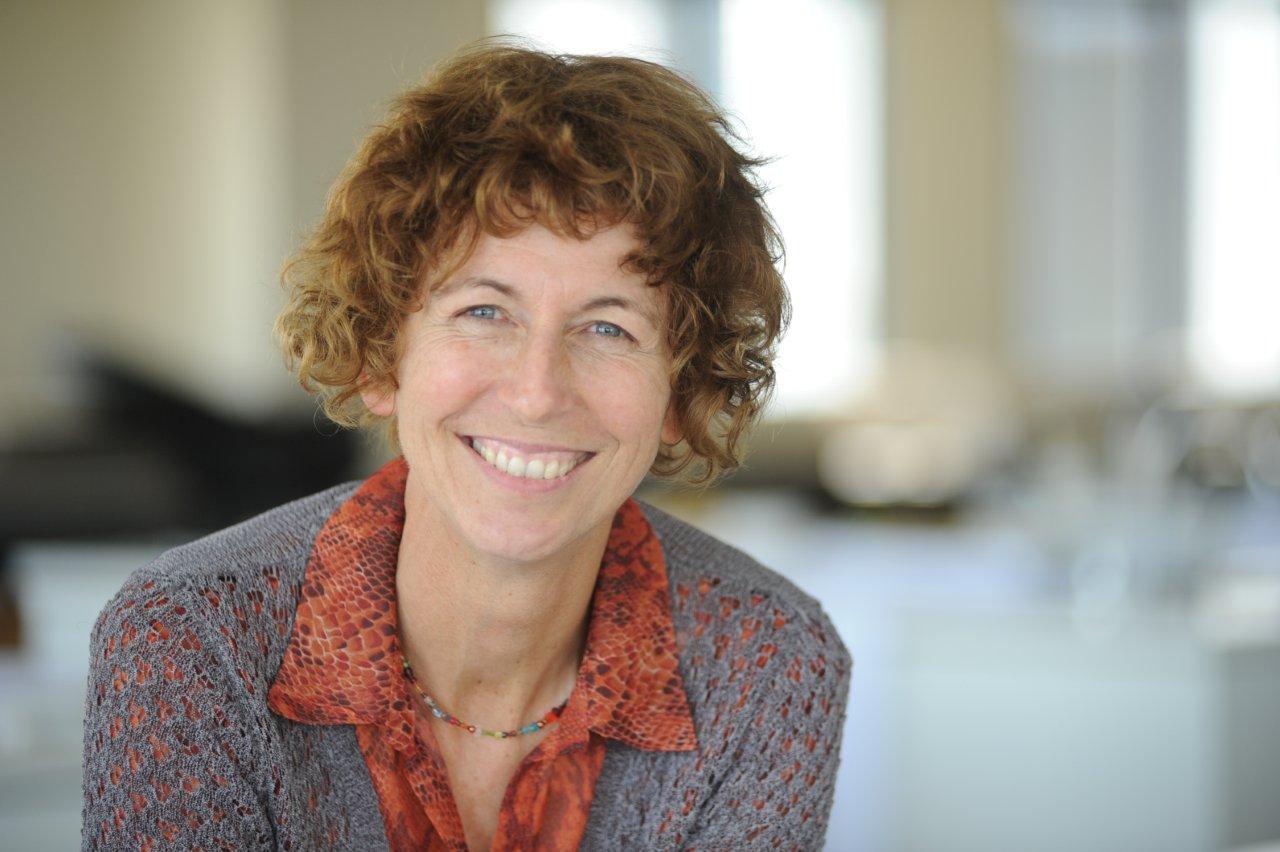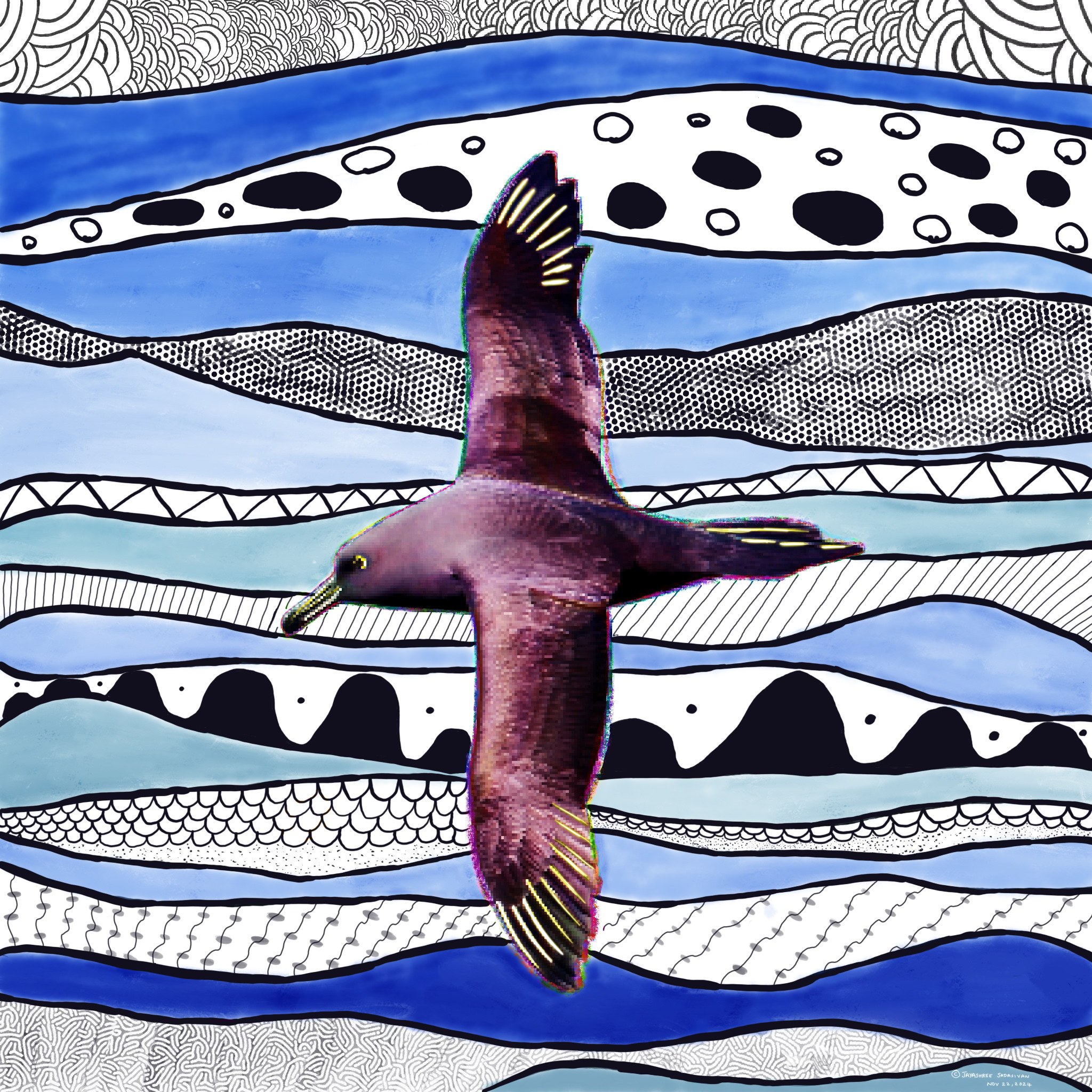 Sooty Albatross by ABUN artist Jayashree Sadasivan for the “Conservation Campaign for Marion Island”. Digital, after a photograph by Stefan Schoombie
Sooty Albatross by ABUN artist Jayashree Sadasivan for the “Conservation Campaign for Marion Island”. Digital, after a photograph by Stefan Schoombie
The Mouse-Free Marion (MFM) Project is a registered non-profit company in South Africa, established to eradicate the invasive albatross- and petrel-killing House Mice on Marion Island in the Southern Ocean. The project was initiated by BirdLife South Africa and the South African Department of Forestry, Fisheries and the Environment. Upon successful completion, the project will restore the critical breeding habitat of over two million seabirds, many globally threatened, and improve the island’s resilience to a warming climate.
To increase awareness, and to raise funds, the project team has been working with artists from around the world in two important ways.
The “Conservation Campaign for Marion Island” Special Project
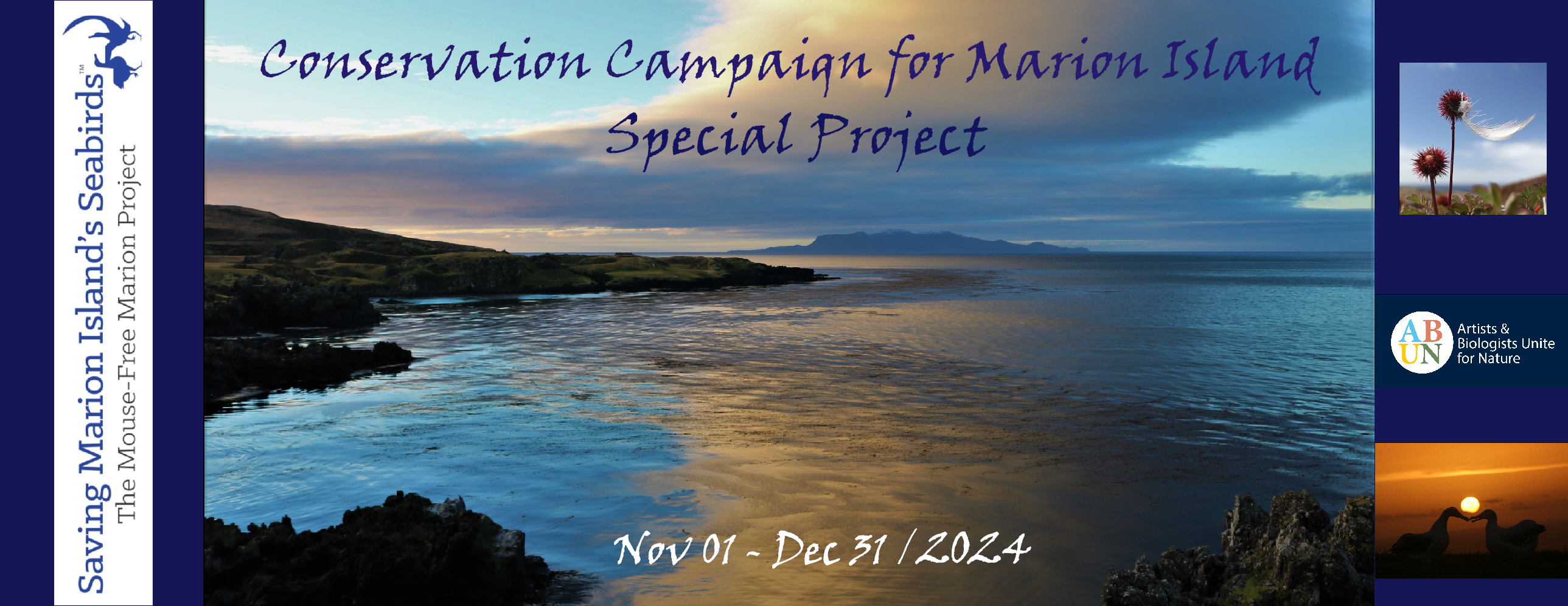
For the three months of November 2024 to January 2025 the MFM Project has been collaborating with the collective Artists & Biologists Unite for Nature (ABUN) in a special project entitled “Conservation Campaign for Marion Island”. ABUN artists are invited to create and submit artworks that the MFM project may use. Their chosen subjects are inspired by photograph’s of Marion Island’s biota, notably its avifauna that is threatened by the mice To date, 30 artworks have been submitted; they can all be viewed here. The artists’ original art remains their own property.

Grey Petrel and chick by ABUN artist Andrea Siemt for the “Conservation Campaign for Marion Island”. Gouache on black watercolour paper, after a photograph by Ben Dilley
Auction aboard the Flock to Marion AGAIN! 2025 voyage
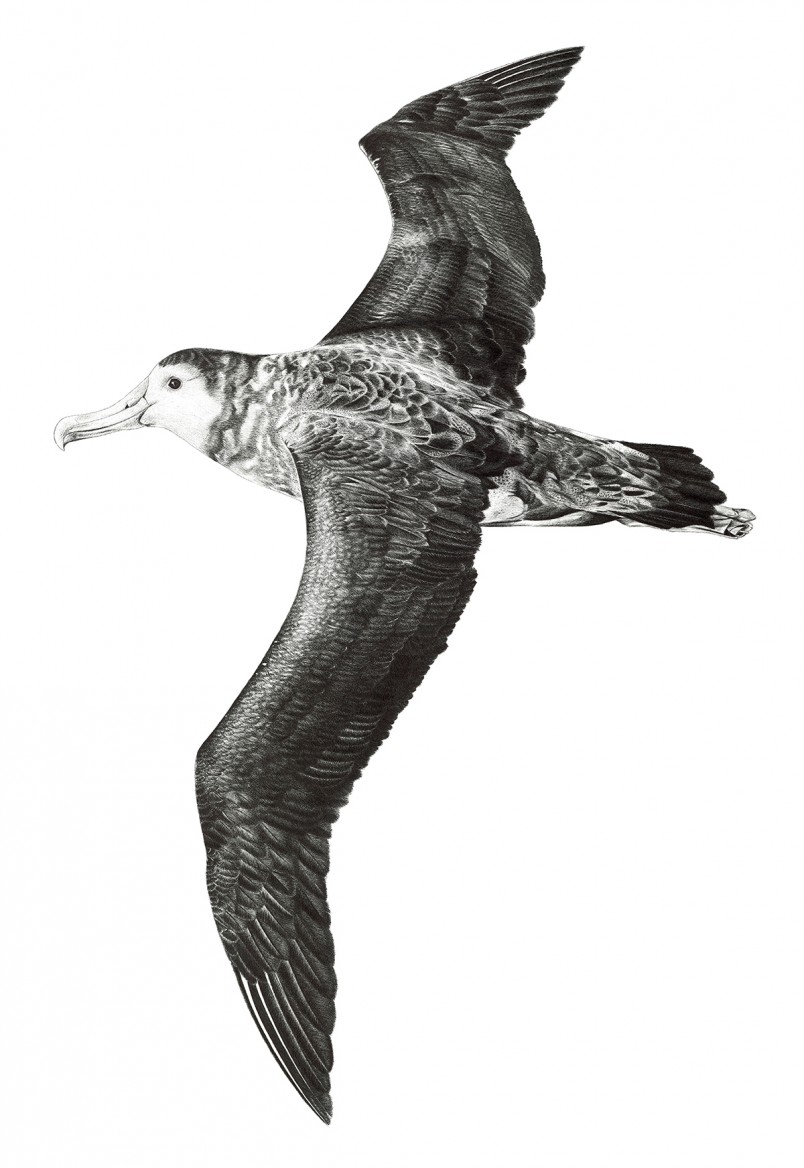
“Subantarctic Soaring” by Hannah Shand; a print will be auctioned
On 24 January 2025, the MSC Musica will set sail from Durban, South Africa towards sub-Antarctic Marion and Prince Edward Islands in the southern Indian Ocean on a week-long cruise with 1850 excited birdwatchers aboard. On the last night of the voyage the Mouse-Free Marion Project will hold a live auction, with well-known author of seabird guides and project patron, Peter Harrison MBE as the auctioneer. The project has received a number of donated artworks, both originals and high-quality prints to auction. These include artworks by ACAp-illustrator Namo Niumim, who lives in Bangkok, Thailand, Caren Loebel-Fried from Volcano, Hawaii, New Zealanders Angela Newport and Hannah Shand, and Kitty Harvill (ABUN Co-founder) and Holly Parsons who reside in the USA. South African contributing artists include Elizabeth Poulsom and Leigh Wolfaardt.

“The Albatrosses of the Prince Edward Islands" by Leigh Wolfaardt; the original will be auctioned on the Flock voyage
John Cooper, Emeritus Information Officer, Agreement on the Conservation of Albatrosses and Petrels, 16 January 2025

 English
English  Français
Français  Español
Español 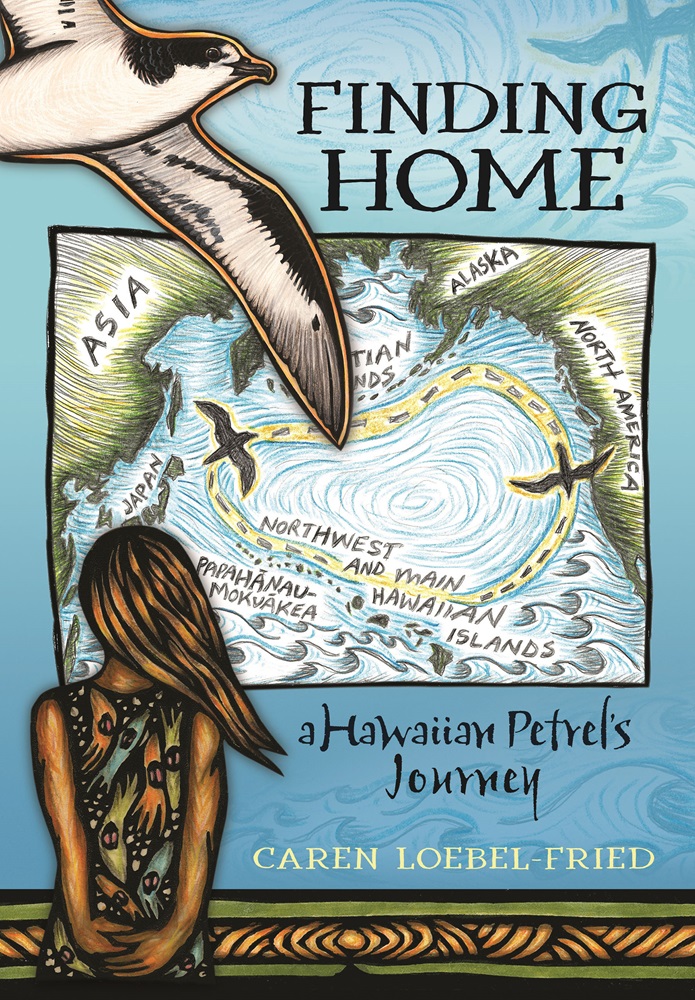

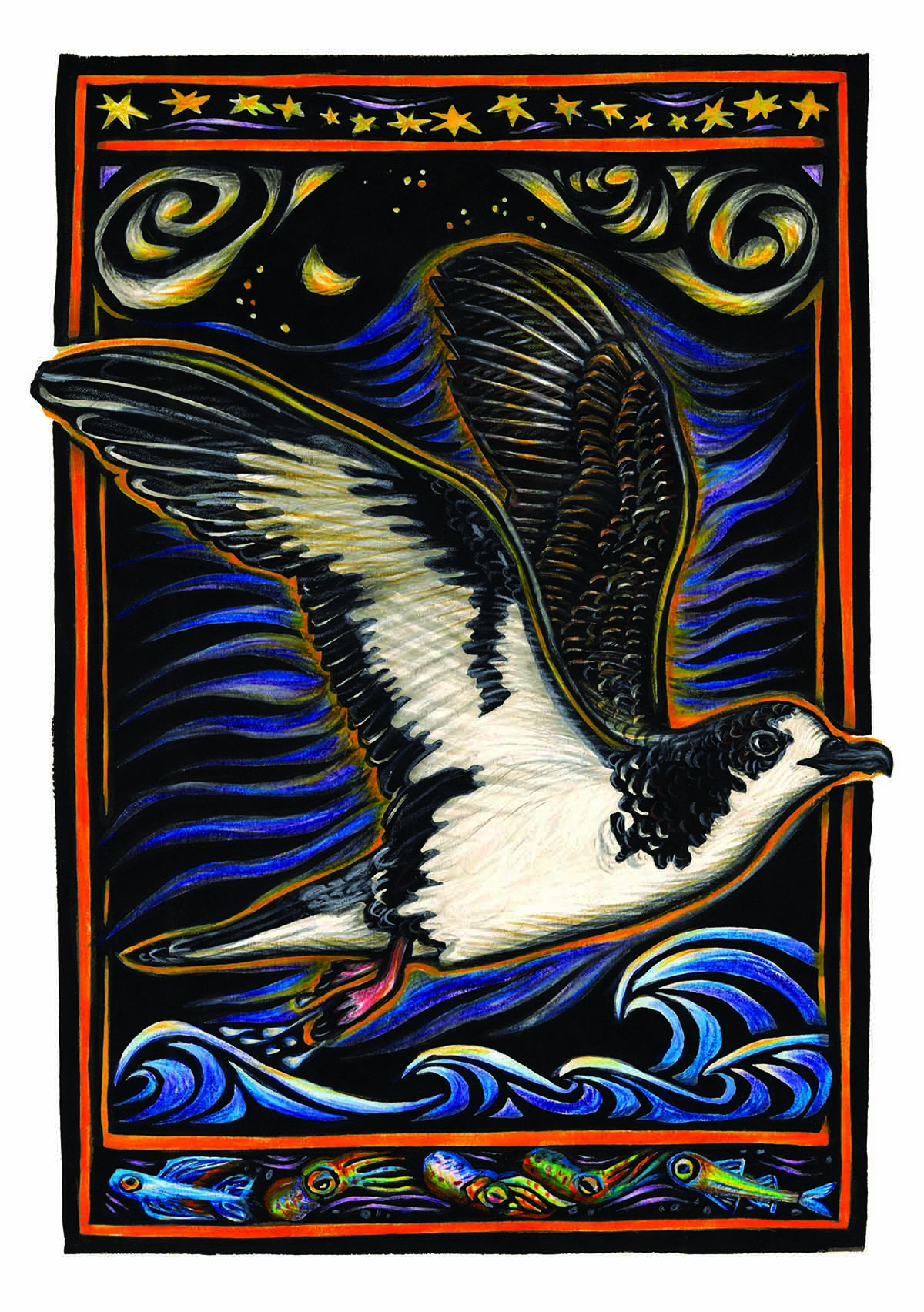
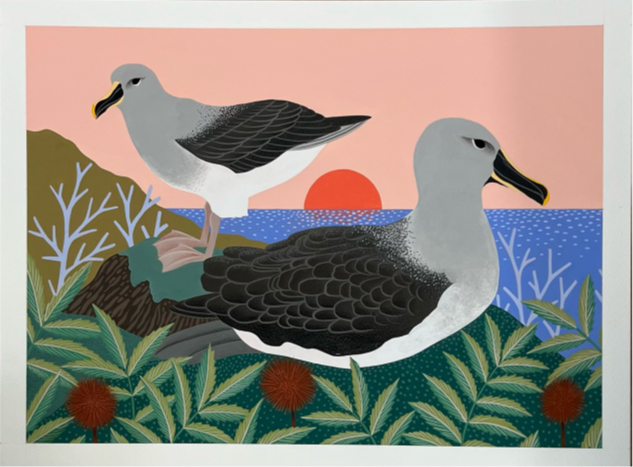

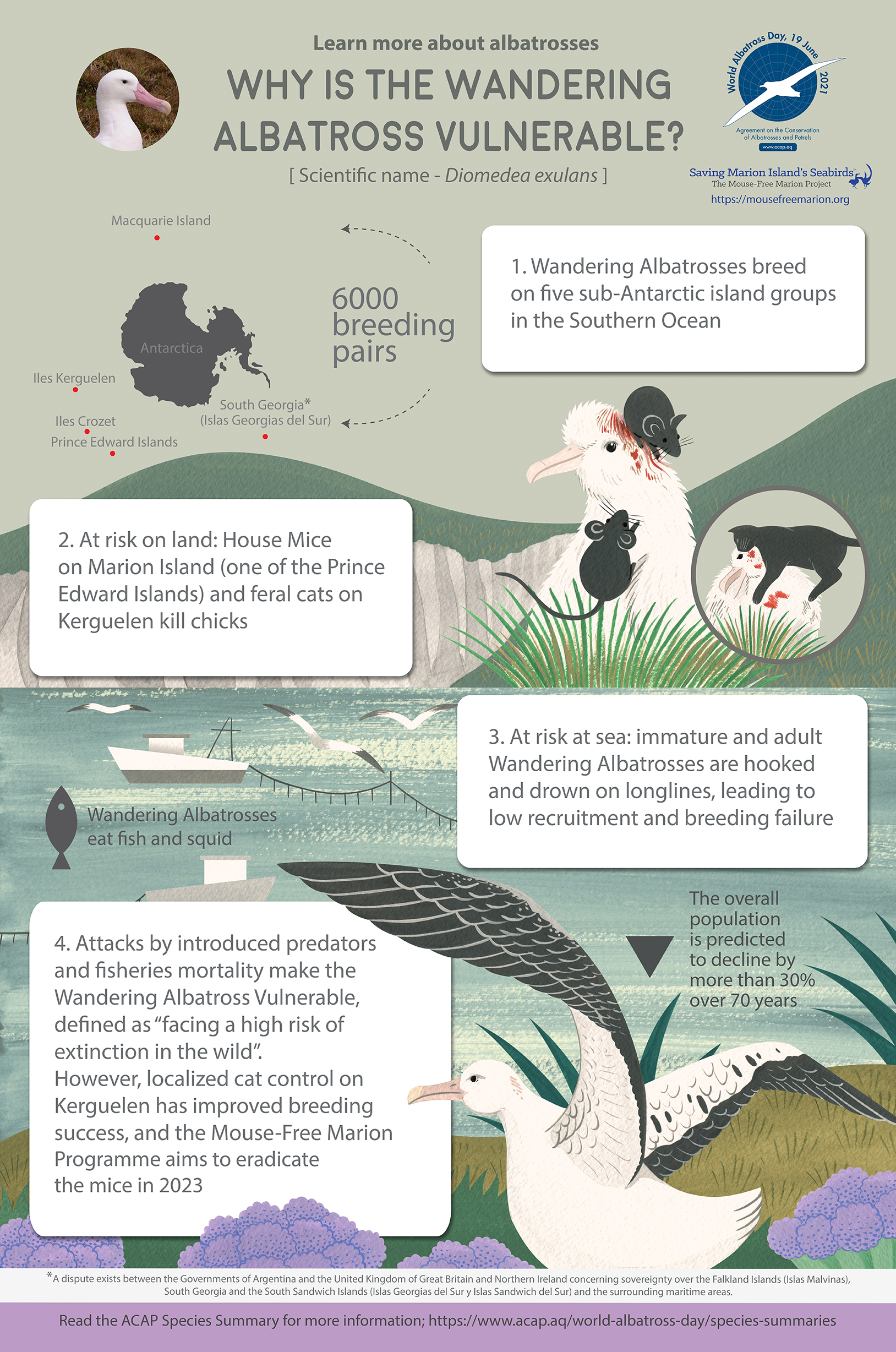
 Namo produced this poster of the four albatrosses that breed on the island for the Mouse-Free Marion Project, using artwork from her ACAP infographics. You can
Namo produced this poster of the four albatrosses that breed on the island for the Mouse-Free Marion Project, using artwork from her ACAP infographics. You can 